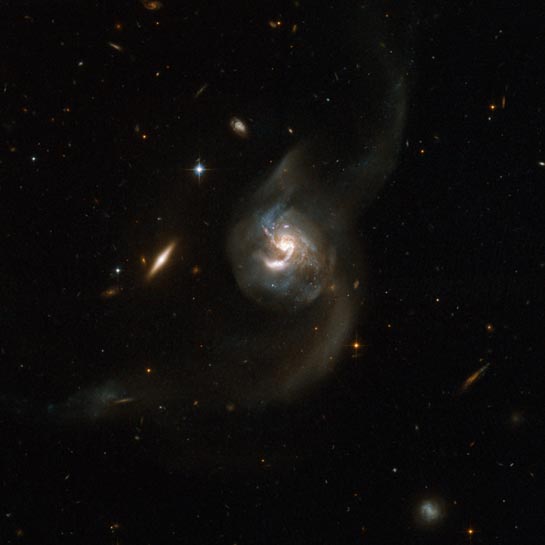
Interacting Galaxies
RA 16h 11m 40.3s Dec 52° 27' 24.99"
Draco
400 million light-years (100 million parsecs)
14.0
36" x 18"
September 18, 2005 and November 12, 2005
1 hour
F435W (B), FR656N (Halpha), and F814W (I)
NASA, ESA, the Hubble Heritage (STScI/AURA)-ESA/Hubble Collaboration, A. Evans (U of Virginia, Charlottesville/NRAO/Stony Brook University), and G. Ostlin (Stockholm University)
April 24, 2008
ABOUT THIS IMAGE:
NGC 6090 is a beautiful pair of spiral galaxies with an overlapping central region and two long tidal tails formed from material ripped out of the galaxies by gravitational interaction. The two visible cores are approximately 10,000 light-years apart, suggesting that the two galaxies are at an intermediate stage in the merging process. The Hubble image reveals bright knots of newborn stars in the region where the two galaxies overlap. The right hand component has a clear spiral structure if viewed face-on, while the other is seen edge-on with no spiral arms visible. NGC 6090 is located in the constellation of Draco, the Dragon, about 400 million light-years away from Earth. A number of fainter, and more distant, background galaxies is seen in the image. This system has much in common with the famous Antennae galaxies both in terms of how far the merger has progressed and in our viewing angle. It was discovered on June 24, 1887 by Lewis Swift.
This
image is part of a large collection of 59 images of merging galaxies taken
by the Hubble Space Telescope and released on the occasion of its 18th
anniversary on 24th April 2008.